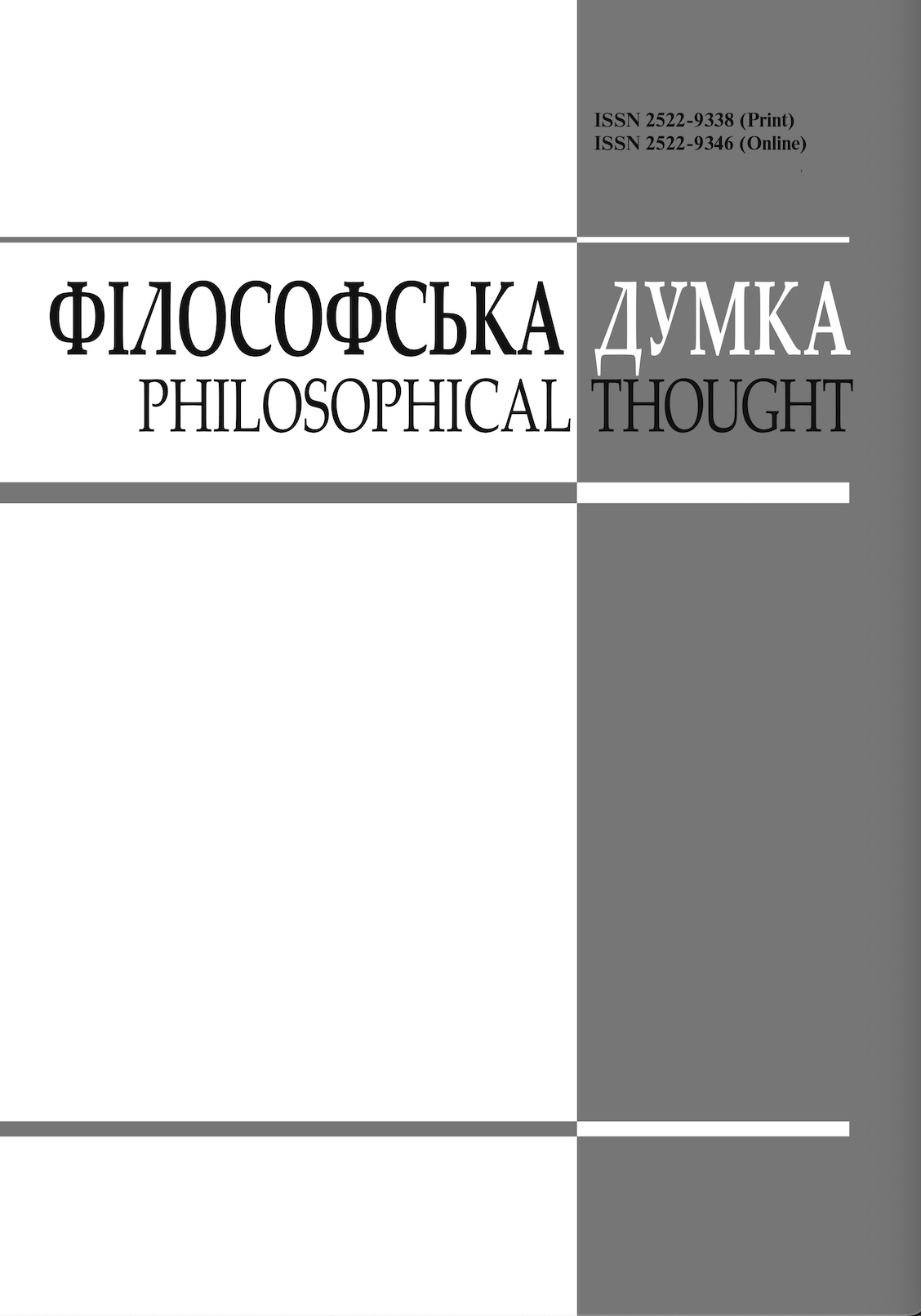Concept of ressentiment by Max Scheler and its contemporary relevance
HISTORY OF WORLD PHILOSOPHY
DOI:
https://doi.org/10.15407/fd2024.02.105Keywords:
affect, ethics, experience, institution, life, man, Max Scheler, moral, norm, ressentiment, revenge, suppression, valueAbstract
The article deals with Max Scheler's philosophical concept of ressentiment. In “Ressentiment in the Structure of Morals”, he uses Friedrich Nietzsche's concept of "ressentiment" to describe an important negative phenomenon in modern moral and culture in general.
The article shows that Max Scheler's descriptive method organically grows out of the phenomenological philosophy of Edmund Husserl and at the same time imitates some specific features of Wilhelm Diltai's descriptive and analytical psychology. On the basis of this methodological approach, Max Scheler does not explain ressentiment and does not give a clear definition of this concept, but instead reproduces its formation in the philosophy of Friedrich Nietzsche and describes the phenomenon of ressentiment.
Using the descriptive method, Scheler concludes that ressentiment is related to the desire for revenge and feelings of powerlessness. He also describes the different dimensions of ressentiment, which can be formulated as follows:
- Kinship and sexual dimension.
- Age dimension.
- Professional dimension.
- Class dimension.
There is also noted in the article that Scheler demonstrates national ressentiment rather than critically analyzes it. This circumstance to some extent brings to light the Zeitgeist, i.e. the spirit of time, when authoritarian and totalitarian ideologies and regimes such as Russian Bolshevism and German Nazism were formed, being undoubtedly feed by the destructive energy of resentment. The author of the article also discovers a connection between Scheler's concept of ressentiment and Freud's concept of suppression.
The study shows how, on the theoretical basis of Max Scheler's concept of ressentment, it is possible to critically deconstruct not only such historical manifestations of ressentiment as Bolshevism and Nazism, but also some dangerous and destructive trends in the modern world, namely the ideology of the "Russian world" (“Russkii mir”).
References
REFERENCES
Dilthey, W. (1894). Ideen über eine beschreibende und zergliedernde Psychologie. In: Sitzungsberichte der Königlichen Preussischen Akademie der Wissenschaften zu Berlin, Jahrgang 1894, Zweiter Halbband. Berlin: Verlag der Königlichen Akademie der Wissenschaften.
Gelen, F. (1963). Probleme einer soziologischen Handlungslehre. In: A. Gelen, Studien zur Anthropologie und Soziologie (SS. 196–231). Neuwied am Rhein: Hermann Luchterhand Verlag.
Husserl, E. (2020). Ideas Pertaining to a Pure Phenomenology and to a Phenomenological Philosophy. First Book: General Introduction to a Pure Phenomenology / Tr. from German, comments: V. Kebuladze. [In Ukrainian]. Kharkiv: Folio. Kebuladze, V. (2024). Max Scheler's ‘The Idea of Man’ and the Modern World. ...
Kebuladze, V. (2020). Phenomenology of experience. [In Ukrainian]. Kyiv: Dukh i Litera.
Loy, A. (2024). Situation of Reason. [In Ukrainian]. Kyiv: Dukh i Litera.
Moore, J.E. (2003). Principles of ethics. Kyiv: Port-Royal.
Scheler, M. (1955). Das Ressentiment im Aufbau der Moralen. In: M. Scheler, Vom Umsturz der Werte. Abhandlungen und Aufsätze (SS. 33–147). Bern, München: Francke Verlag.
Scheler, M. (2018). Die Stellung des Menschen im Kosmos / Hrsg. von W. Henckmann. Hamburg: Felix Meiner Verlag.
Downloads
-
PDF (Українська)
Downloads: 549
Published
How to Cite
Issue
Section
License
Authors who publish with this journal agree to the following terms:
- Authors retain copyright and grant the journal right of first publication.
- Authors are able to enter into separate, additional contractual arrangements for the non-exclusive distribution of the journal's published version of the work (e.g., post it to an institutional repository or publish it in a book), with an acknowledgement of its initial publication in this journal.
- Authors are permitted and encouraged to post their work online (e.g., in institutional repositories or on their website) prior to and during the submission process, as it can lead to productive exchanges, as well as earlier and greater citation of published work (See The Effect of Open Access).


